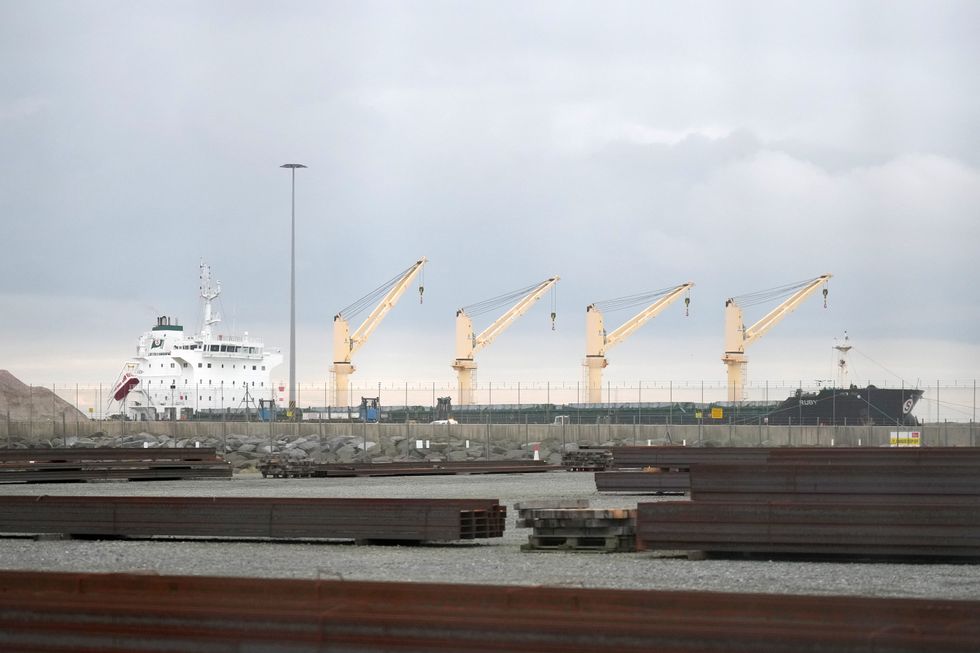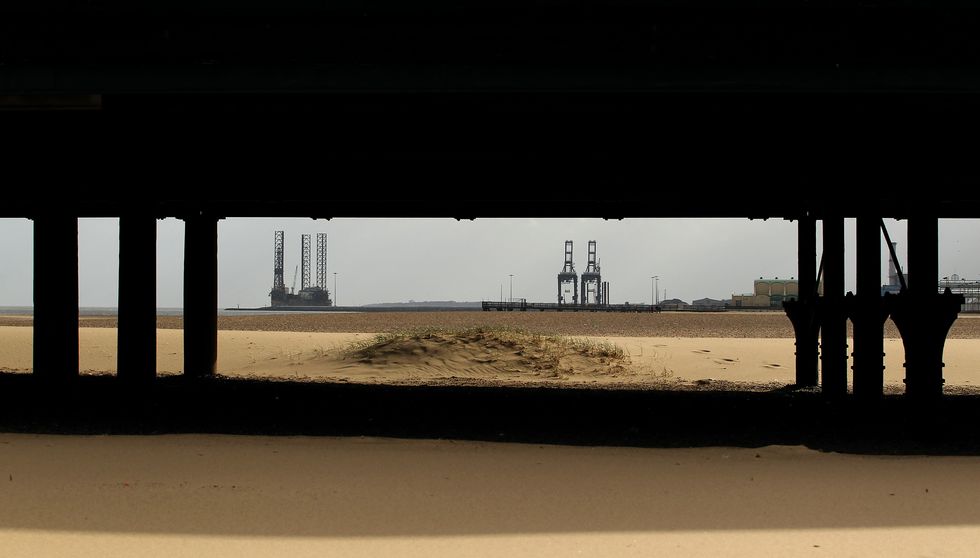Huge load of ‘explosive’ contaminated Russian fertiliser dubbed ‘floating time bomb’ dumped off British coast
A cargo vessel carrying 20,000 tonnes of potentially explosive ammonium nitrate has dumped 300 tonnes of contaminated Russian cargo into the sea near Great Yarmouth.
The Maritime and Coastguard Agency (MCA) confirmed that seawater and hydrocarbons had contaminated part of the MV Ruby’s load in its forward-most hold.
The Maltese-registered vessel, which was carrying more than seven times the amount of ammonium nitrate involved in the deadly 2020 Beirut blast, had sustained damage before docking at Great Yarmouth port.
The MCA revealed that the contamination likely resulted from a grounding incident several weeks ago, leading to the decision to dump the affected cargo at sea.
The vessel discharged the contaminated fertiliser approximately 12 miles off the coast of Great Yarmouth before returning to port.
Prior to its arrival in Great Yarmouth on October 28, the ship had been anchored near Margate in Kent, awaiting repairs to its damaged hull and propeller following rough weather.
The MV Ruby initially departed from Russia’s northern port of Kandalaksha in August, destined for Las Palmas in the Canary Islands.
Several European countries turned the vessel away due to concerns about its explosive cargo.

The ship sought refuge in Tromsø, Norway, on September 3 during a storm, according to the Barents Observer.
The vessel was subsequently ordered to leave Norway in early September before eventually making its way to Great Yarmouth.
Kay Mason Billig, leader of Norfolk County Council, and Great Yarmouth Borough Council deputy leader Graham Plant issued a joint statement expressing strong opposition to the vessel’s return.
“We are extremely concerned that the secretary of state’s representative has agreed that this ship can return to Great Yarmouth,” they said.
“That is unacceptable.”
“It should never have come in the first place, due to the potential risk of a major explosion that could have affected residents and businesses across Great Yarmouth.”
The council leaders urged the Government to prevent the MV Ruby’s return.
The MCA spokesperson emphasised that Great Yarmouth port has the capability to handle hazardous materials, with discharge and transhipment being common practice.

To mitigate risks, authorities implemented strict safety measures, including halting all non-essential port operations.
The MCA, Norfolk Resilience Forum, HSE and the port worked together to ensure compliance through regular site checks.
“The MCA and its partners have worked together to continually monitor the situation with the MV Ruby, including working to understand changing risks,” the MCA spokesperson said.

